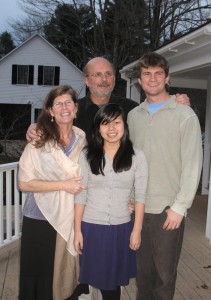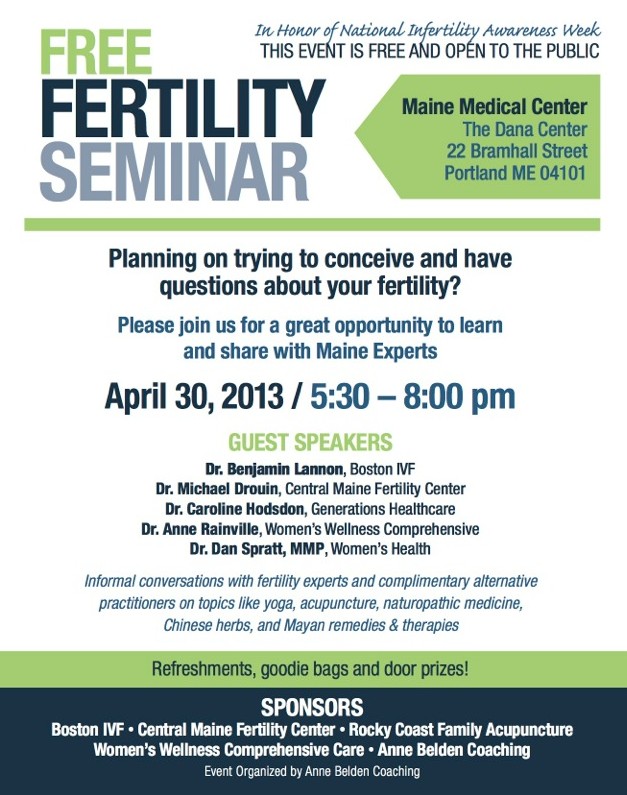 Anne Belden and her husband John began trying to get pregnant when she was 29. It would take them 10 years to build their family — 3 1/2 years and many rounds of fertility treatments before their son was conceived and after he was born, another five years of the same before they decided to adopt their daughter.
Anne Belden and her husband John began trying to get pregnant when she was 29. It would take them 10 years to build their family — 3 1/2 years and many rounds of fertility treatments before their son was conceived and after he was born, another five years of the same before they decided to adopt their daughter.
Today, there are a lot more treatment options for infertility than Anne had 30 years ago, and success rates for conceiving are much higher. Thanks to the Internet, there is also a wider support network and better opportunities to access the latest information. Something else that is different is more women are waiting longer to start their families, which increases their risk of infertility problems.
One important factor is still the same and will probably never change — the emotions of infertility. “It definitely is a really stressful process,” says Anne, “and sometimes couples find they have different values that they never knew about. For instance, one person might be comfortable with a donor embryo and the other may not. One person may be comfortable with surrogacy and the other may not. It’s not something you ask about during the courtship, but you bump into these things and all of a sudden all of these unspoken feelings bubble up to the surface.”
Infertility: a definition
Infertility means not being able to get pregnant after one year of trying or six months if your are 35 years or older. Women who can get pregnant but are unable to stay pregnant may also be considered infertile. Infertility affects about 7.3 million women and men in the United States. But sadly, says Anne, many people see the issue as shameful and something that should not be discussed openly.
“I believe it is one of the last social issues to come out of the closet,” she says. “One in eight couples have fertility problems and many, many of them don’t talk about it. They don’t talk to their parents about it, they don’t talk to their friends. They have to make up lies about where they are going from work to go to all their appointments. There is such a sense of embarrassment and even shame around infertility because there is such a cultural expectation that you’re going to be able to have children.
Free Fertility Awareness Seminar
Anne, who has a master’s degree in family relations, uses her professional expertise and her personal experiences to help individuals and couples struggling to conceive. She is a certified fertility coach in Portland and also runs several support groups. In recognition of National Fertility Awareness Week — an initiative spearheaded by Resolve, the National Infertility Association — Anne organized a:
Free Fertility Awareness Seminar
Tuesday April 30th from 5:30 to 8:30 pm
Dana Center at Maine Medical Center in Portland.
The seminar brings together several Maine-based fertility experts as well as complementary medicine practitioners. “I think that many of us come from one place or another, the more traditional and the less traditional,” Anne explains. “One of the things we’ve learned is that drawing from different modalities can really be helpful. Not everything is right for everyone. My point in asking all these different practitioners is so that people can begin to get a sense of what might work for them.”
If you would like more information about the seminar you can send Anne Belden an email or call her at 207.233.5939.


Leave A Comment